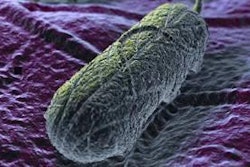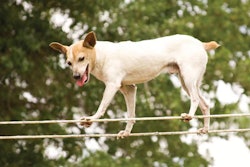The research and education arms of the American Feed Industry Association (AFIA) and National Grain and Feed Association (NGFA) are partnering to finance a major project that will help animal feed, feed ingredient and pet food facilities cost-effectively comply with a core requirement of the Food and Drug Administration’s final rules implementing the Food Safety Modernization Act (FSMA).
AFIA’s Institute for Feed Education and Research (IFEEDER) and NGFA’s National Grain and Feed Foundation (NGFF) are co-sponsors of a hazard evaluation of typical ingredients and processes associated with the manufacturing and distribution of animal feed and pet food being conducted by researchers at the University of Minnesota College of Veterinary Medicine’s Center for Animal Health and Food Safety (CAHFS). The results of the project are expected to provide a strong scientific basis for identifying hazards and developing a hazard analysis that companies can adapt to their specific operations, thereby potentially saving covered facilities millions of dollars were they to have to perform such an analysis from scratch.
FSMA requires covered animal food facilities to establish and implement an animal food safety system that includes an analysis identifying “known or reasonably foreseeable” hazards for each type of animal food manufactured, processed, packed or stored at a facility to determine if any hazards exist that require risk-based preventive controls. Under FDA’s final animal food rule, a hazard analysis must be reviewed every three years, or earlier, if there are changes to equipment, manufacturing processes or other operations that make a review warranted.
Under the project, CAHFS will develop a generic hazard analysis and provide it to the two associations’ foundations, which in turn will share it with AFIA- and NGFA-member facilities. Those individual facilities then will be able to use the generic analysis to determine what, if any, “known or reasonably foreseeable” hazards at their facilities need to be addressed with either current good manufacturing practices or preventive controls.
“We are very fortunate we were able to identify the CAHFS as an organization capable of taking this on and at a reasonable cost,” said Joel G. Newman, AFIA president and CEO and IFEEDER president. “The interaction with the Center and both of the sponsors to-date has been excellent, and we look forward to receiving the final document and to the symposium IFEEDER is sponsoring at the Joint Annual Meeting this summer to vet the process used to identify these feed hazards.”
“This partnership between NGFF and IFEEDER should be indispensable in enabling covered animal food facilities to cost-effectively comply with this core requirement of FDA’s FSMA final rule,” said Randy Gordon, NGFA president and NGFF secretary. “This project will enable companies to jump-start that process by leveraging the expertise at the University of Minnesota’s CAHFS, making compliance as practical and cost-effective as possible.”
The total project cost is expected to reach US$170,000. CAHFS intends to publish the study’s methodology and other attributes of the assessment in a peer-reviewed journal. The projected completion date for the project is October 2016.













